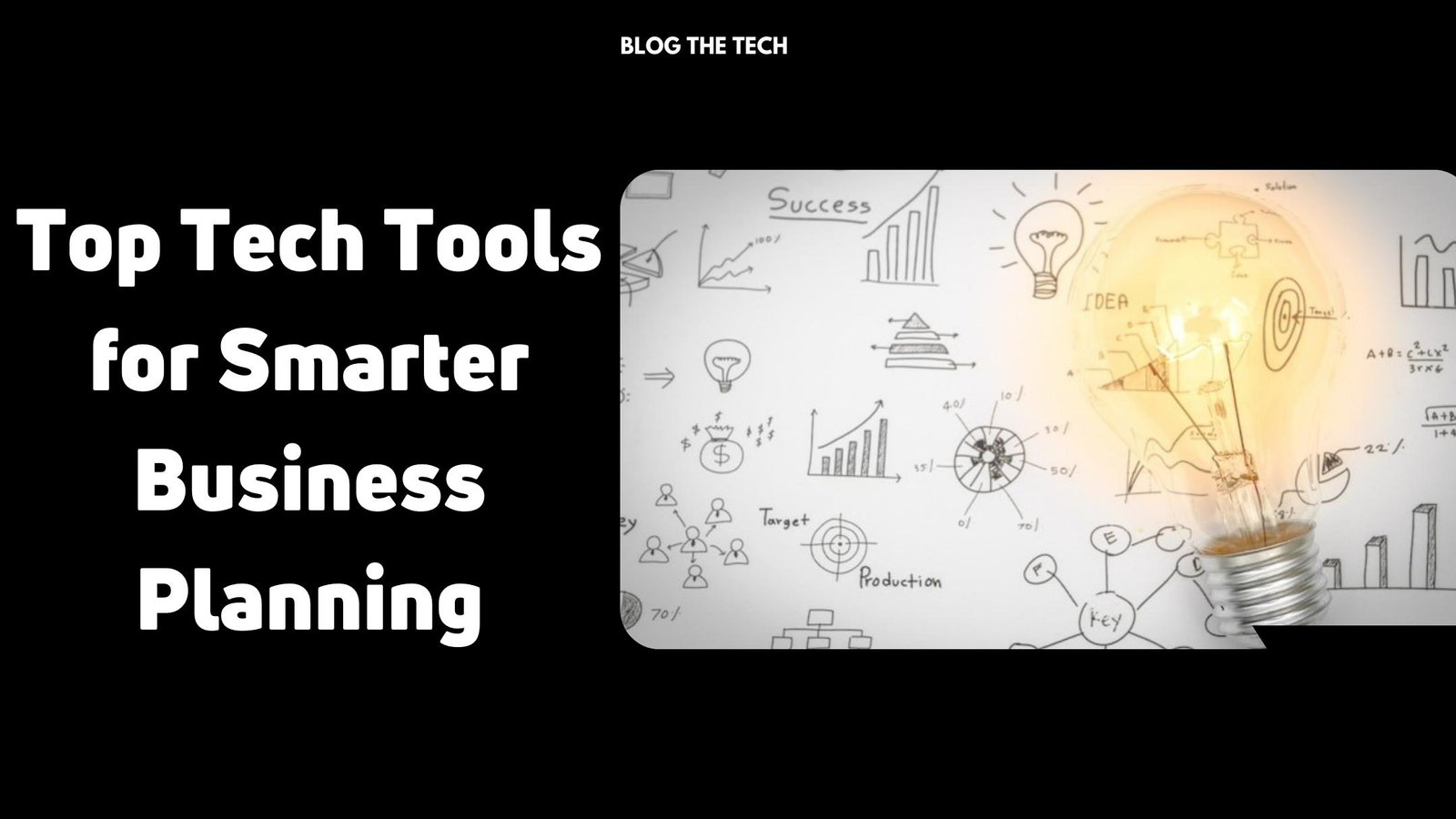In the modern business world, it’s more important than ever to have the right tech tools in place to help you make informed decisions, streamline processes, and collaborate effectively. This article explores the top tech tools that can empower your business planning process, including business intelligence platforms, predictive analytics software, cloud-based collaboration platforms, project management software, market research platforms, financial management software, customer relationship management (CRM) software, and advanced data visualization tools.
Along with other strategies that fuel business growth and resilience, outline these tech tools in your business plan to bolster your competitive advantage. For a solid plan, use this simple business plan template as a reference.

8 Top Tech Tools for Smarter Business Planning
By adopting these tech tools, your business can gain valuable insights, make data-driven decisions, and stay ahead of the competition.
1. Business Intelligence (BI) Platforms
The first tech tools to consider is a business intelligence (BI) platform. These platforms gather, analyze, and present vast amounts of data, empowering businesses to make informed decisions based on concrete information. By consolidating data from multiple sources, BI tools provide visually appealing dashboards, charts, and graphs that are easily comprehensible. Through BI platforms, businesses can identify trends, spot emerging opportunities, and assess performance metrics in real-time. Popular BI tools, such as Tableau, Power BI, and QlikView, are known for their user-friendly interfaces and comprehensive data analysis capabilities.
2. Predictive Analytics Software
Predictive analytics software is another tech tools that can take business planning to the next level by utilizing historical data to make informed predictions about future events and trends. These tools analyze patterns and correlations within data to predict future events, customer behavior, market trends, and potential risks. By leveraging predictive analytics, businesses can proactively develop strategies, optimize inventory management, and improve customer satisfaction. Remarkable platforms, such as IBM SPSS, SAS Predictive Analytics, and RapidMiner, are known for their advanced predictive capabilities.
3. Cloud-based Collaboration Platforms
For effective business planning, collaboration plays a vital role. This involves teams and departments working together harmoniously. To foster collaboration, cloud-based platforms, such as Google Workspace and Microsoft 365, provide an extensive range of productivity tools. These include shared documents, spreadsheets, and virtual meeting spaces. By utilizing these platforms, seamless communication is facilitated, enabling real-time collaboration and hassle-free file sharing. Not constrained by physical location, team members can collaborate efficiently, thereby accelerating the planning process.
4. Project Management Software
The next vital tech tools for enhancing business planning is project management software. Several popular options, including Asana, Trello, and Jira, provide comprehensive solutions for organizing tasks, setting deadlines, and monitoring progress. These tools often incorporate useful features, such as Kanban boards, Gantt charts, and task assignment capabilities. By effectively utilizing project management software, businesses can maintain focus, minimize bottlenecks, and achieve optimal outcomes.
5. Market Research Platforms
Informed business planning requires a thorough understanding of the market and customer needs. Various market research platforms, including SurveyMonkey, Qualtrics, and Google Surveys, empower businesses to conduct surveys and gather valuable feedback from their target audience. This accumulated data is invaluable in refining business strategies, fostering new product development, and accurately assessing customer satisfaction levels. Moreover, these platforms can also be used to assess competitors and identify emerging market trends, positioning businesses for long-term success.
6. Financial Management Software
Another essential tool for smarter business planning is financial management software. Solutions, such as QuickBooks, Xero, and FreshBooks, provide businesses with robust accounting solutions to track expenses, manage invoices, and generate financial reports. These platforms streamline financial processes, making it easier for businesses to analyze their financial health, identify areas of improvement, and wisely allocate resources. With accurate and up-to-date financial data at their fingertips, businesses can make well-informed financial decisions for future growth.
7. Customer Relationship Management (CRM) Software
Another indispensable tech tool that bolsters smarter business planning is Customer Relationship Management (CRM) software. This software centralizes customer data, streamlines communication, and automates routine tasks, enabling businesses to provide personalized experiences and foster long-term loyalty. By tracking interactions, managing leads, and analyzing customer behavior, CRM empowers businesses with valuable insights into their clientele, facilitating data-driven decisions that align with customer preferences and needs.
8. Advanced Data Visualization Tools
Finally, advanced data visualization tools can help businesses gain actionable insights from their data. These tools go beyond basic charts and graphs, offering interactive and dynamic visualizations that help businesses interpret data with clarity and precision. By showcasing trends, patterns, and correlations, data visualization tools, such as Tableau, D3.js, and Microsoft Power BI, empower decision-makers to quickly grasp the implications of the data at hand. Consequently, they can identify opportunities, assess risks more effectively, and develop strategic plans with heightened confidence.
Conclusion
Leveraging technology is essential for smarter business planning. By adopting these tech tools, your business can gain valuable insights, make data-driven decisions, and stay ahead of the competition in today’s dynamic business landscape. Embracing technology is no longer an option, but a necessity for your business to thrive and succeed.
Incorporating these tools will help facilitate data-driven decision-making and enhance communication and collaboration across teams.




